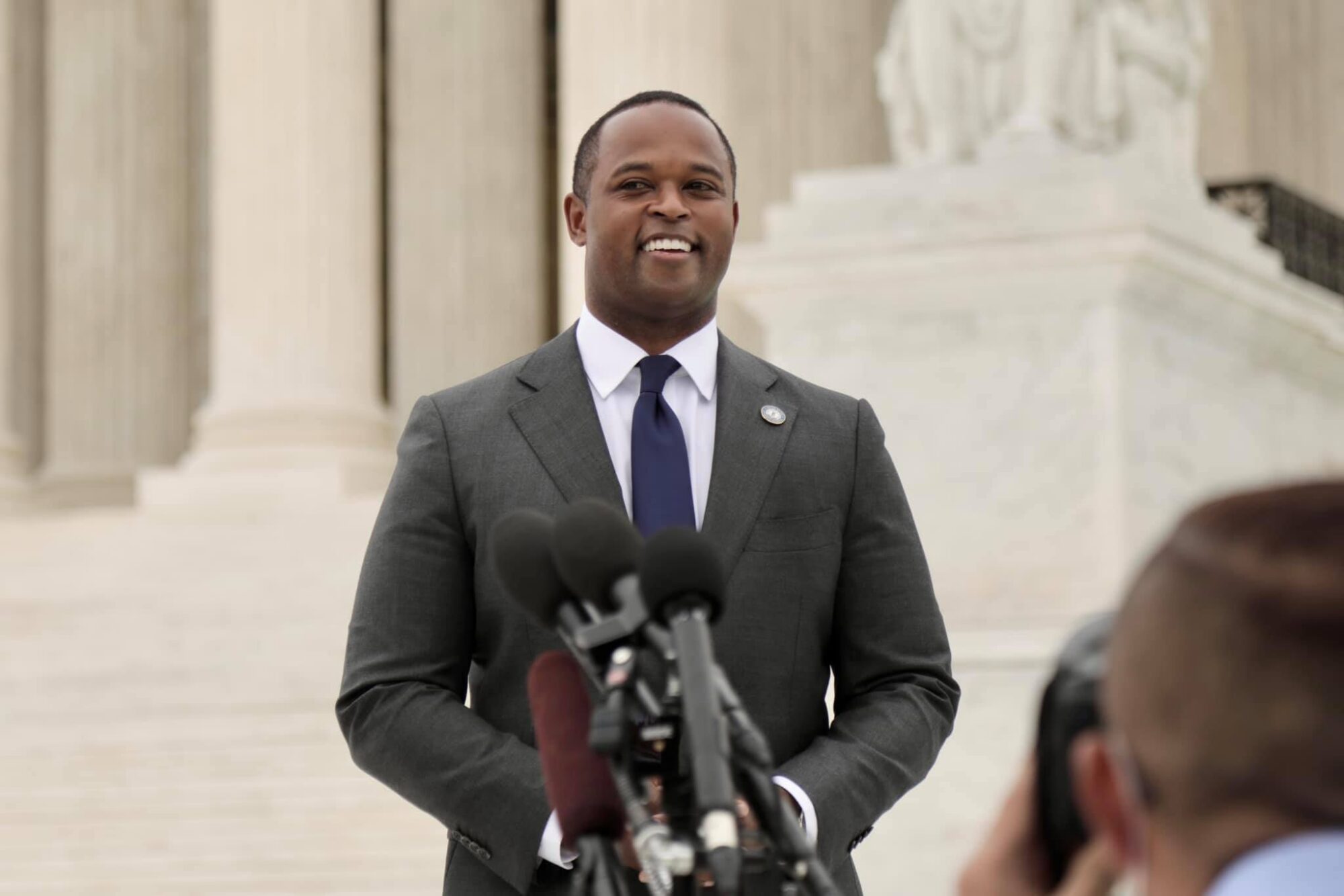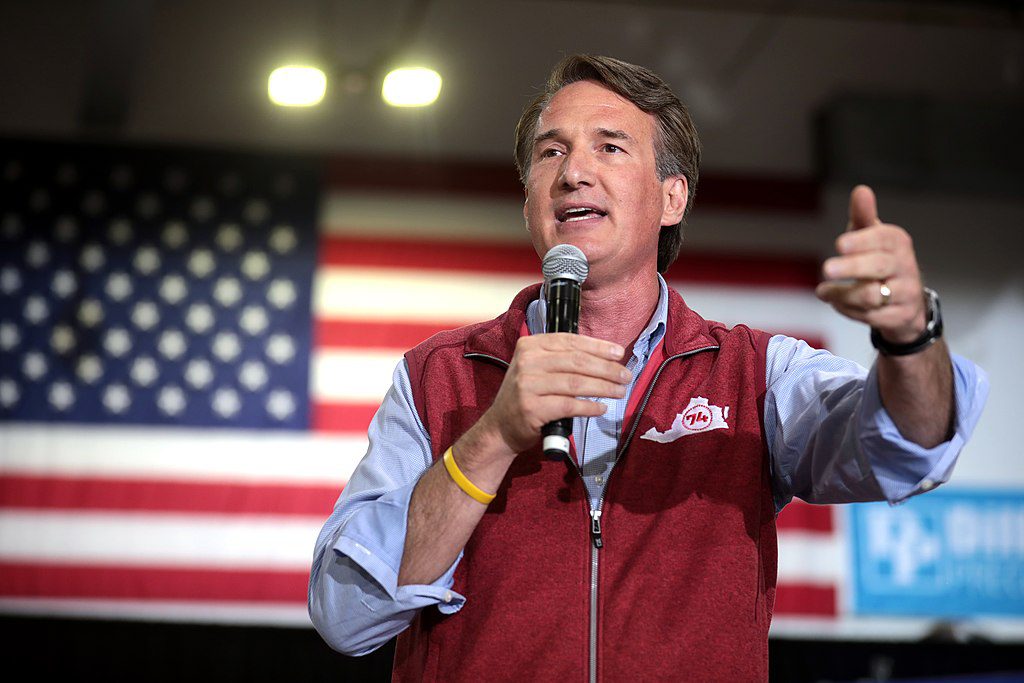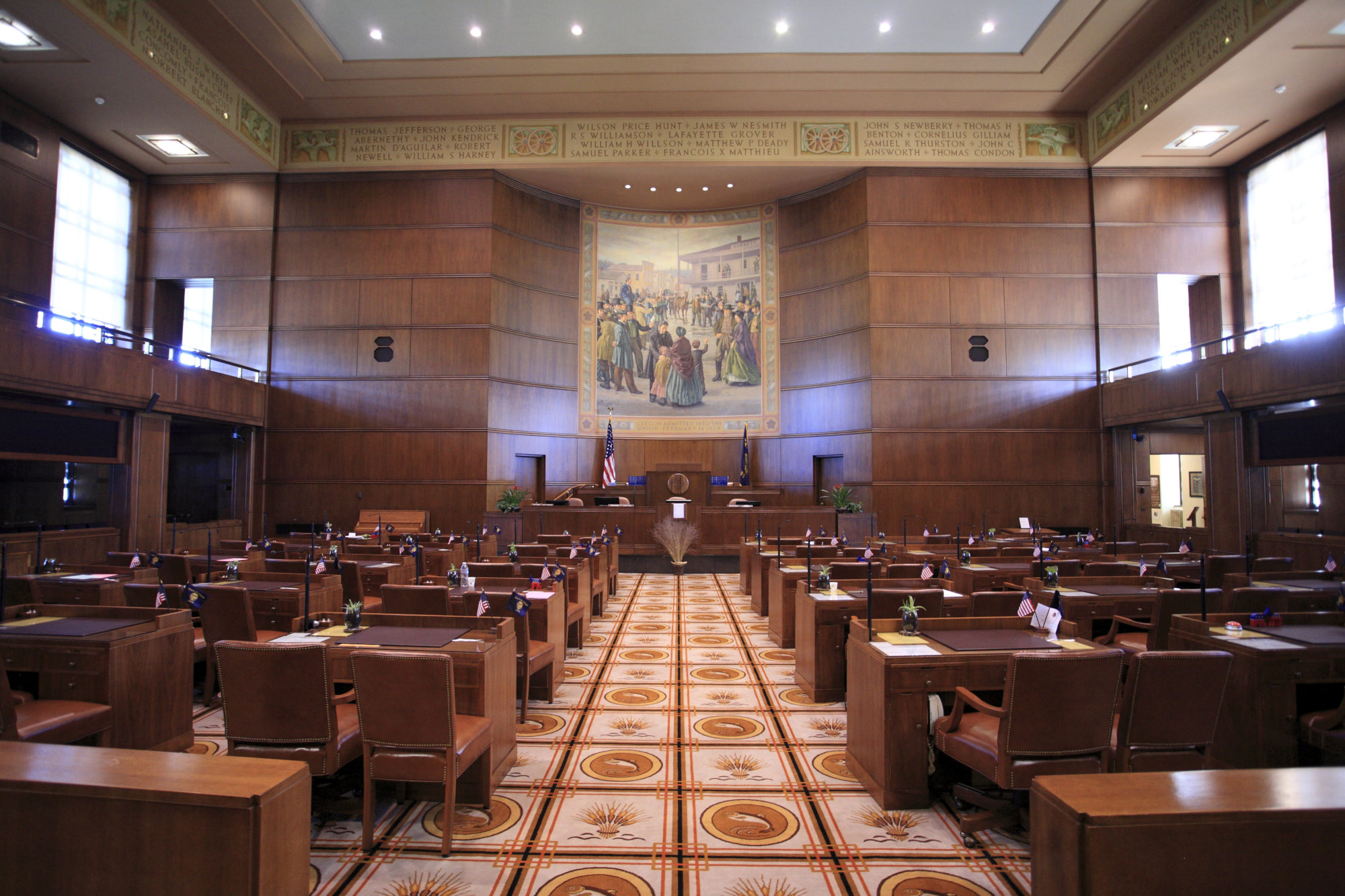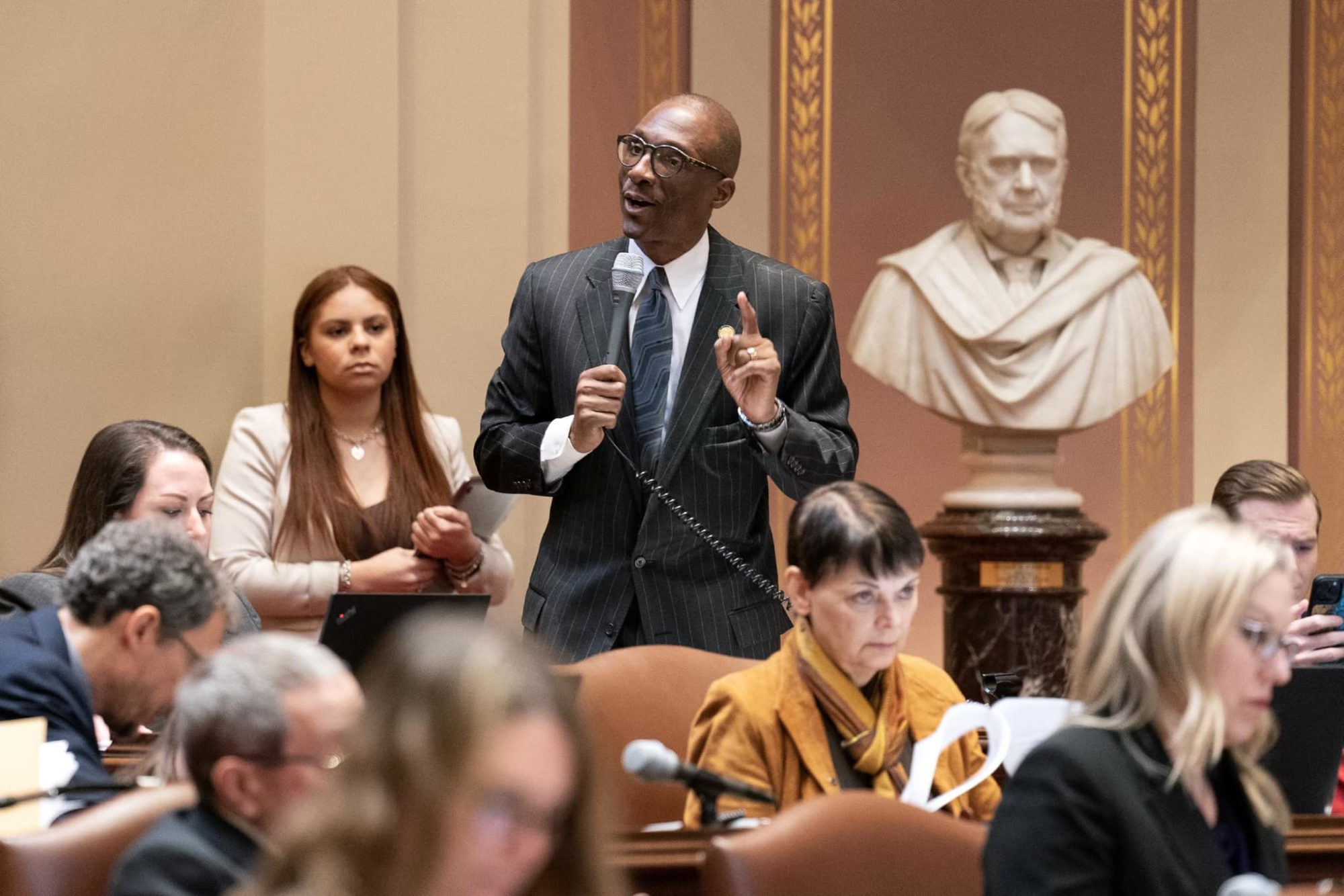Kentucky’s Governor Race Could Unwind Voting Rights Restoration
The state’s last Republican governor revoked an executive order that restored people’s voting rights. Advocates worry the GOP nominee in November’s election may do the same thing.
| July 28, 2023

When Kentuckians choose their governor in November, they’ll also be deciding whether some of their neighbors can access the ballot at all in future elections.
At issue is an executive order Democratic Governor Andy Beshear issued in 2019, on his third day in office, that has restored the voting rights of at least about 180,000 people, or five percent of Kentucky’s adult population. The state constitution prohibits anyone convicted of a felony from voting for the rest of their life, but Beshear circumvented that by offering blanket restoration to most people who complete a sentence.
The fate of that order rests on the next governor’s goodwill, and each of the state’s last three governors have used their executive power to flip their predecessor’s policy on this issue. Beshear, a Democrat, is now running for re-election in this typically-red state against Republican Attorney General Daniel Cameron. Voting rights advocates are nervous that Cameron, who is running as a law-and-order type and painting Beshear as soft on crime, may reverse the current order.
“We’re direly concerned that he would retract voting rights,” said Shelton McElroy, a volunteer organizer with Kentuckians for the Commonwealth, a group that helps people register to vote. McElroy himself was released from prison in 2002 but was unable to vote until after Beshear’s order in 2019.
The last time a Republican replaced a Democrat in Kentucky’s governor office, McElroy recalls, it prompted just such a stepback in rights restoration. Governor Steve Beshear, Andy’s father, had issued a blanket restoration order similar to the one currently in place in his final days as governor in 2015. Matt Bevin, the Republican who replaced him, immediately rescinded the order upon taking office, bringing rights restoration to a near-halt: the turnaround was so quick that very few people had time to benefit from Steve Beshear’s move and secure their rights back in that interval.
Tens of thousands of Kentuckians were caught in that 2015 whiplash. Debra Graner, who had lost her right to vote in 2012, was among them. Like McElroy, she too had to wait until Andy Beshear’s 2019 order to see her voting rights finally restored, and she is anxious to see that the issue remains so unsettled. “It’s a scary proposition if Daniel Cameron wins and reverses the order,” she told Bolts. “Being able to get out there and vote is one of the biggest civil rights you can have,” Graner said.
Bolts talked to more than a dozen people involved in Kentucky politics, both liberals and conservatives, and all said they’ve not seen Cameron commit to a stance on how he would handle rights restoration, though many noted he has chosen to make “tough on crime” rhetoric a major part of his gubernatorial platform.
“The fact that he’s not willing to speak about it kind of speaks for itself,” said Democratic state Representative Keturah Herron, a longtime champion for expanding the franchise. One advocate who said he personally pressed Cameron on this issue came away with the impression that he is playing coy.

But the same voting rights advocates who fear a major retrenchment if Beshear loses have also been disappointed by the scope of the governor’s order, and they’ve spent the last few years asking him to go further. Some even sued Beshear to compel him to do so, though they lost in court this month.
Beshear’s order automatically restores people’s voting rights when they finish all parts of their sentence—but it only applies to people who were convicted of nonviolent felonies.
People convicted of offenses that the state categorizes as violent remain barred from voting for life, even after they have completed all parts of their sentence. The same is true of people who were convicted of felony in a different state, or in federal court.
For the people who are not covered by Beshear’s order, the only path is to apply for and receive an individual act of clemency, which is a rare and difficult process.
This has kept Kentucky well out of step with most of the rest of the United States. Besides Kentucky, only 11 states disenfranchise any group of people for life, and most of those states have much narrower carve-outs than Kentucky. Even some Republicans have been more lenient than Beshear: in 2020, for instance, Iowa’s Republican Governor Kim Reynolds issued an executive order restoring rights when people complete any sentence, excepting only those convicted of homicide.
Kenneth Williamson, who won back his voting rights in 2019 due to Beshear’s order, wishes the governor dropped his carve-outs. “It means the world to me to participate in the process that I was held out of for so long, but I absolutely wish he’d give everyone their right back if they’ve completed their sentences,” he told Bolts.
About 5 percent of Kentucky’s voting-age population—over 150,000 people—remains disenfranchised and won’t be able to vote in November. That’s more than double the national disenfranchisement rate.
It includes 12 percent of Black Kentuckians, who are disproportionately targeted by the state’s criminal legal system, according to data compiled by the Sentencing Project, a national research organization.
Before Beshear’s order, disenfranchisement rates were even higher. Twenty-six percent of Black adults were deprived of the right to vote in the 2016 election, according to The Sentencing Project.
Beshear’s office has provided no criteria for how it responds to individual petitions for rights restoration from people who are not covered by his order; his office recently said in court that it assesses whether an individual is ”worthy” of the franchise.
The Fair Elections Center, a national voting rights organization, filed a lawsuit in 2019 that argued that this vague approach violated the First Amendment by subjecting some people’s right to political expression to arbitrary control of the governor. Beshear fought that lawsuit, seeking to maintain his exclusive authority to pick and choose among applications. The Sixth Circuit of the U.S. Court of Appeals sided with him when it rejected that suit last week, ruling that the governor has the discretion to decide who is or isn’t worthy of having their rights restored.
In a statement to Bolts, Beshear’s campaign embraced the selectiveness of the 2019 order. “Governor Andy Beshear will continue to stand up for the right to vote in a second term and the restoration of voting rights for Kentuckians with non-violent offenses who have paid their debt to society,” it said.
The campaign also warned that its Republican opponent would narrow voting rights further. “Just like Matt Bevin did before, Daniel Cameron would rescind automatic voting rights restoration for non-violent offenders,” that statement read.
For Jon Sherman, litigation director of Fair Elections Center, the organization that filed the lawsuit against Beshear, the upcoming election is a matter of harm reduction. Beshear’s approach is unusually punitive, but it widened the path to rights restoration for many Kentuckians. “A reversal of the current order, would take the bad part of the Beshear policy on rights restoration and expand it,” Sherman said. “That is very much on the ballot in November.”
Sherman added, “It’s deeply un-American to have one person or government official sitting in judgment over the worthiness of a person with a felony conviction and deciding whether or not they should be able to participate in our democracy, and for that to be the sole and exclusive means by which people get the right to vote would be a travesty.”
If Cameron or another future governor were to rescind Beshear’s blanket order, it would not snatch back voting rights from people whose eligibility was restored under it, Sherman and other election law experts told Bolts.
Executive orders operate prospectively and cannot undo an individual’s rights restoration. In 2015, Steve Beshear’s order had required people to apply for a state certificate to restore their rights; Bevin shut the door on that process before people had gotten a chance to obtain those. Andy Beshear’s order requires no application, so it is not subject to the same retroactive torpedoing.
Marcus Jackson, founder and executive director of Advocacy Based on Lived Experience, a Kentucky-based organization that aims to empower currently and formerly incarcerated people, says he has spoken several times to Cameron and asked him directly whether he’d amend Beshear’s approach. He says he was unable to pin Cameron down.
“He insinuated it’s not even on his radar,” Jackson, who himself is disenfranchised even under Beshear’s order, told Bolts. “He is saying he doesn’t even care about it, but I know with the right pressure he would do the exact same thing Bevin did.”
During the 2015 election, Bevin, like Cameron as of now, took no firm position on felony disenfranchisement. A spokesperson for Bevin even hinted after his election that the Republican generally agreed with his opponent’s order. But Bevin then rescinded it less than a month later.
Cameron’s platform makes clear he wants to make Kentucky’s approach to criminal justice much stricter in general. His stated agenda includes calls to expand the death penalty, rein in citizen oversight of law enforcement, increase police wiretapping; and make it harder for incarcerated people to be granted parole.
“Because Cameron himself has not come out with a public statement [on rights restoration], we look at his record on other progressive issues and we don’t think it looks favorable,” McElroy said.
Cameron, who is endorsed by former President Donald Trump, has painted Kentucky as unsafe and plagued by out-of-control crime. When asked recently whether he, as Kentucky’s attorney general and top law enforcement agent, plays any role in shaping the landscape he describes, he told local media, “Andy Beshear bears all the responsibility.”
But the forecast of Cameron’s stance on rights restoration is somewhat complicated by the fact that he was a vocal supporter of criminal justice reform as recently as a few years ago.
Before he ran for attorney general, he was the spokesperson of a coalition called Kentucky Smart on Crime, that comprised organizations such as the ACLU of Kentucky, the Catholic Conference of Kentucky, and the state’s criminal defense bar. In 2018, Cameron wrote a column in the Courier-Journal advocating for a bill that would have implemented a slew of changes, from bail reform to defelonization of drug possession.
Earlier this year, Cameron’s primary opponents slammed him for his prior affiliation with the ACLU and Smart on Crime. In response, Cameron released a letter signed by 37 sheriffs, prosecutors, and police chiefs touting his “law-and-order” solutions.
Democrats once ran state politics in Kentucky, but the GOP has surged to near-total power over the last decade, and today holds supermajorities in both the state House and Senate. Trump carried the state by 26 percentage points in 2020. Still, Beshear ranks among the nation’s most popular governors, and recent polling has shown him with a lead against Cameron.
For voting rights advocates in Kentucky, the very fact that people’s access to the ballot is again coming down to a single election shows the need for more lasting change. They continue seeking a constitutional amendment that would automatically restore voting rights going forward.
“It doesn’t make sense to me that people depend on the governor to make that executive order,” said Herron, the Democratic lawmaker, who has championed this effort and plans to do so again in the 2024 session.
These proposals have stalled in the legislature for years, despite some bipartisan support. A measure asking voters to codify some automatic rights restoration even passed the GOP-run Senate in 2020 before fizzling in the House. Kentucky’s Republican Secretary of State, Michael Adams, is outspoken in favor of a change. “I strongly support amending the constitution to take it out of the hands of one person and make it permanently part of our constitution,” Adams told Bolts after he secured a primary win in May.
“You shouldn’t have a governor change, and the electorate change,” he added. “The governor shouldn’t decide who gets to vote. It’s just not a good look.”
Until then, the rights restoration process can still be upended by one governor’s pen stroke.
Said McElroy, “It’s races like these that demonstrate to us that we aren’t in a safe space just because one governor passed an executive order.”
Sign up and stay up-to-date
Support us
Bolts is a non-profit newsroom that relies on donations, and it takes resources to produce this work. If you appreciate our value, become a monthly donor or make a contribution.




